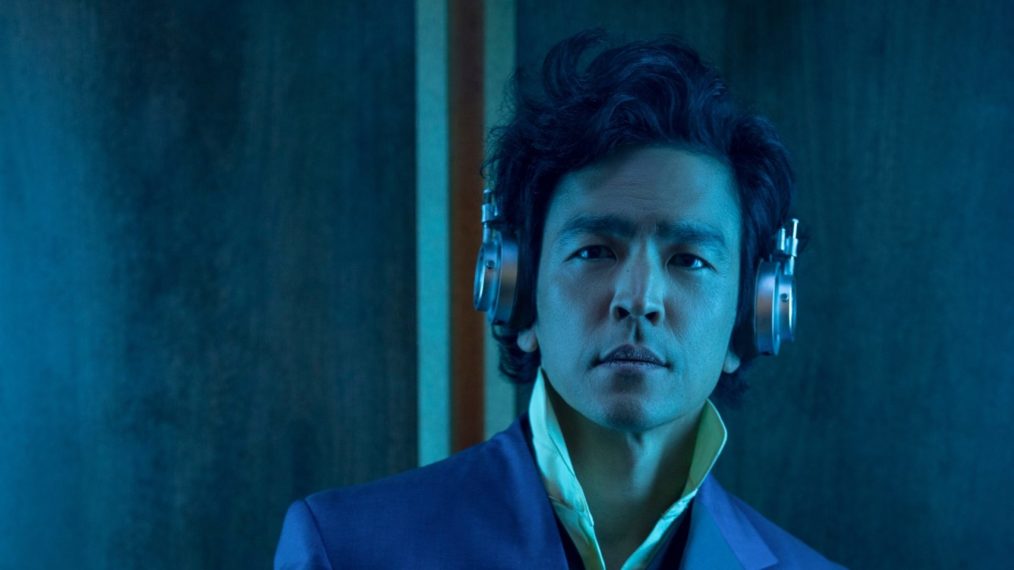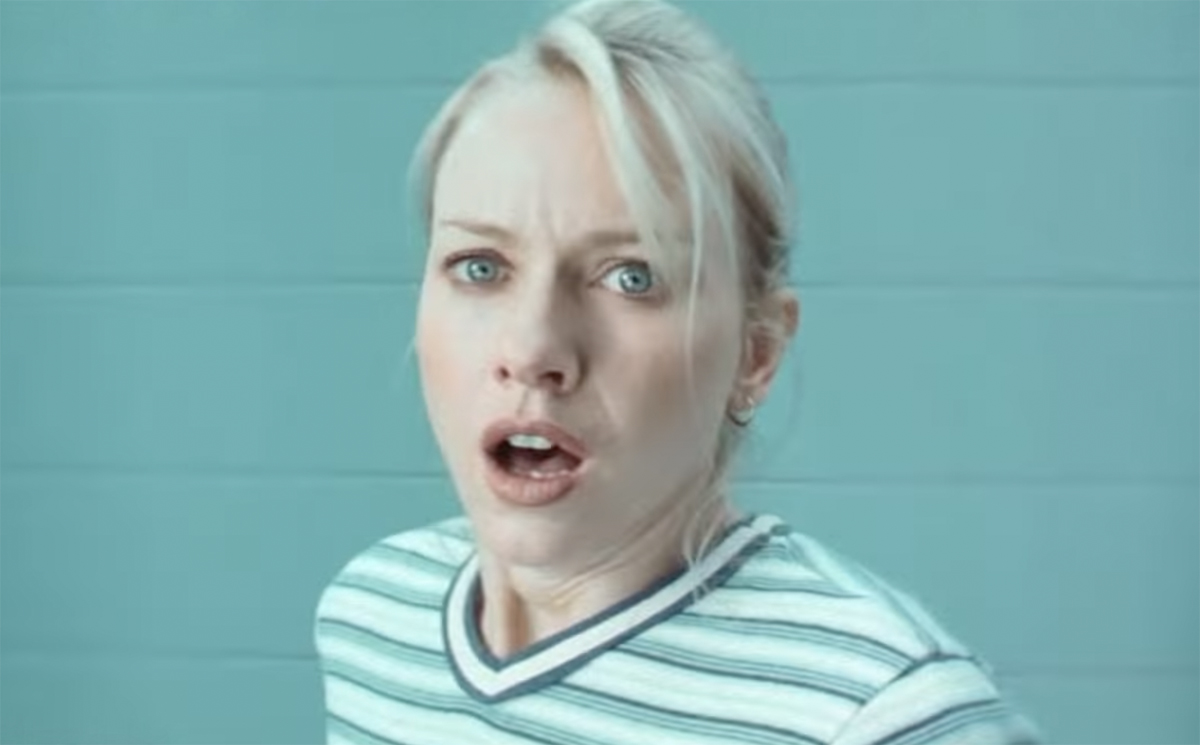#Paramount’s Chris McCarthy on the Future of ‘Daily Show,’ ‘Yellowstone’ Offshoots and Why Showtime Eulogies Are Premature

It’s been six months since Chris McCarthy added Showtime to his portfolio, and he knows what a healthy swath of Hollywood has said. He’s read the network eulogies and seen the variations on “RIP Showtime” tweets. He’s even sat with folks who have bemoaned his stated plan to lean into franchises, be it more Billions or Dexter. And it would all probably irk him more if it weren’t exactly what he needed.
“People not thinking it’s going to work is the motivation. Like, great, perfect,” he says as he dives into a rotisserie chicken salad.
It’s a rainy March afternoon, and The Terrace at The Maybourne Beverly Hills, which McCarthy has selected for lunch (and lodging), lacks its usual bustle yet still has a smattering of soggy stars like Halle Berry, Jerrod Carmichael and Justin Bieber. The executive, who floats through anonymously, has been here in Los Angeles every other week since he inherited Showtime, which shares space in his vast portfolio with Comedy Central, MTV, VH1 and Paramount Network. Home is and will continue to be New York, however, where McCarthy, now in his mid-40s, lives with his 150-pound rescue dog, Pumpkin.
The truth is, McCarthy has been ascendant at what is now Paramount Global for close to 20 years, but the heavies in Hollywood have only recently started to pay attention. Of course, his achievements were primarily in nonscripted until late 2019, when he was handed the keys to Paramount Network and its then-pricey new Western Yellowstone, which McCarthy spun into one of the most successful franchises in television. Those who have worked with him as he climbed the cable ladder, from Logo to MTV, play up his deft handling of data and his ability to maximize resources and ratings, a skill set that appeals to MBA turned CEO Bob Bakish. What McCarthy is not is a creative, and to the apparent bafflement of Hollywood, he’s not pretending to be.
“I think I often get confused for a creative, and I like to say, ‘I’m a creative businessperson, I’m a creative strategist,’ ” McCarthy tells me, noting that he isn’t the guy poring over scripts at night. In fact, he doesn’t read scripts at all. He says he leaves that to his team of creative executives, led by Nina L. Diaz and Keith Cox, whom he references often and is quick to praise. “I’m more at the concept level. It’s like, ‘If I can see the title, the star and the key art, you’re going to break through the clutter.’ ” (If you’re looking for tea leaves, his personal viewing tastes tend toward The White Lotus, the Paramount-owned LGBTQ comedy Uncoupled and anything that MSNBC’s Rachel Maddow does.)
As he laid out for the rep community during a recent round of agency visits, McCarthy’s Showtime, which will be rebranded Paramount+ With Showtime until someone comes up with a better name, will focus on three distinct lanes. The first, he explains, is about “diverse cultures,” which has been a part of Showtime’s DNA dating back to Soul Food and Queer as Folk. “And even to this day, some of our biggest shows are in that lane,” he says, citing The L Word and The Chi, though he argues that there are not nearly enough of them to retain subscribers. In fact, he’s certain The Chi could be four to five times bigger than it currently is if Showtime had more to offer its audience. “So instead of being just one show a year, I want to have six shows a year,” says McCarthy, noting that he doesn’t mean Chi prequels or sequels, though he also doesn’t rule those out. When it comes to LGBTQ fare, he’s already saved Uncoupled, which was canceled after one season at Netflix. McCarthy says the show, from Emily in Paris creator Darren Star, will become “a little edgier, a little more mature” on his air.
The second lane will feature the kind of antiheroes that the Bob Greenblatt era at Showtime introduced with shows like Nurse Jackie and Weeds. That’s where current series like Yellowjackets, for which there are spinoff ideas already brewing, and a planned Dexter origin story fall. And the third lane, which he credits predecessor David Nevins for carving out with Homeland and Ray Donovan and he’s eager to reignite, is all about “powerful, high-stakes worlds,” be they the CIA, Wall Street or Hollywood. The Department, an espionage series helmed by George Clooney, fits here, along with what will likely be two Billions spinoffs and, though he’s yet to hear any pitches, a Ray Donovan update.
As McCarthy tells it, his plan, which came after a series of swift, ugly cancellations, is a way to provide clarity and a “way higher hit ratio,” which sounds like a bold declaration until you consider Showtime launched 23 new series over the past five years, and only two, Your Honor and Yellowjackets, have proved to be big, durable successes. “And that doesn’t mean anybody did anything wrong or they weren’t great projects,” he adds, no doubt sensitive to the fact that he now oversees some of the folks responsible for whiffs like American Rust and The First Lady. (Though more than 100 Showtime employees, including CEO Jana Winograde, left or were pushed out amid the recent reorganization, veteran programming chief Gary Levine has, to McCarthy’s surprise and delight, decided to stick around as a creative adviser.)
There are plenty in town who remain skeptical, however, as illustrated by the snarky queries that a cadre of top TV agents offers ahead of my lunch. “Please ask Chris if he really thinks the world needs a Billions franchise,” said one. Added another, “Ask him how he plans to create room for new original ideas and series if the focus is on all these franchises.” McCarthy’s heard it all before, and while he argues there is room for “fresh, revelatory takes” — in fact, he says he’s hearing original pitches for potential espionage series the following day — he takes issue with what he calls the misconception around franchises, as though somehow they’re easier to execute. “What we’re applying is a movie model in premium television, and I think, like many things, when it’s new or it’s confusing to people, it’s easy to judge,” he says. “I also think people are just biased toward our company a little. It’s like, no one’s judging Star Wars or Game of Thrones.”
***
What becomes apparent as we make our way through lunch is that McCarthy lacks the slickness, the Hollywood “friends” and the privileged air that one comes to expect from high-ranking entertainment folk. Instead, the understated man sipping chamomile tea across the table grew up in Philadelphia’s blue-collar outskirts with parents who pulled down two jobs apiece: his dad at a chemical plant and as a janitor, his mom at both the steel mill and the mall. By 14, young McCarthy, depressed, gay and deeply closeted, landed a job of his own at Chick-fil-A; by 16, he was upped to manager, putting in 40-hour weeks. There was a time, he says, when he figured that’s what he’d do with his life.
McCarthy ultimately decided he needed to “just get out,” so he enrolled at nearby Drexel University and came dangerously close to failing out during his first semester. “It was like they were speaking Greek,” he says now. So, he put himself in remedial courses and took a teaching class to learn how he best learned, which, it turns out, was through doing, not reading. He went back, registered for a series of industrial engineering classes and graduated second in his class. A few years later, McCarthy was getting his MBA from Wharton. By the time he graduated, in 2003, reality television was taking off and McCarthy was an obsessive consumer. It had been shows like The Real World, after all, that gave him his first glimpse of what life could be if he were out and proud.
Through a friend of a friend, McCarthy got introduced to Jeff Probst, then a few years into hosting Survivor, and together he and Probst came up with a few concepts to pitch. Their first, a competition show called Super Band — “a terrible idea where we’d [form bands composed of] celebrities from previous music acts,” he says — sold to VH1 and went nowhere; their second, Gone Country, about other music stars transitioning to country, ran four seasons on CMT. Through the pitch process, McCarthy met executives at what was then Viacom and landed a freelance gig, which he parlayed into a permanent position.
Over the next two decades, McCarthy managed to successfully navigate his way up at a company in varying stages of upheaval. That means he’s often overseen layoffs, slashed budgets and unceremoniously canceled shows, none of which made him any new friends. “But I grew up a child of an alcoholic, so it’s like, the more chaotic it is, the more almost comforting it is for me,” he offers, acknowledging through laughter: “My therapist would probably say differently, but in a weird way, I’m amazing in chaos. It’s like I thrive in it.” As someone who’s long been open about his mental health struggles, he’s also used his perch to insist the programming on his platforms reflect mental health more responsibly, be it by cutting out damaging language or showcasing subjects getting help.
More recently, McCarthy has been busy managing some of television’s highest-profile franchises, including Yellowstone, which birthed spinoffs like 1883 and 1923 and may now lose its star Kevin Costner over a contentious scheduling saga. McCarthy doesn’t have any updates to share, except to say that the show, which is currently the most-watched across cable and broadcast, “wouldn’t be what it is today without Kevin and we hope that that stays for a long time to come.” And also that Matthew McConaughey is lined up to star in a Yellowstone extension, which will move forward regardless of whether Costner returns to the original. In fact, it’s one of more than 10 projects that McCarthy has with creator Taylor Sheridan, whom he lavishly praises for, among other things, his ability to deliver high-quality, mass-appeal programming as others in Hollywood are focused only on the coasts.
Reimagining The Daily Show was supposed to be the bigger headache, or at least that’s what McCarthy likely imagined last fall when host Trevor Noah abruptly announced he’d be departing at year’s end. Instead, McCarthy, who says he’s consulted Jon Stewart and his agent James “Babydoll” Dixon, has been stunned by both the linear tune-in, up 13 percent year-over-year, and the social excitement around the rotation of guest hosts, who have included Kal Penn, Chelsea Handler, Hasan Minhaj, Sarah Silverman and Leslie Jones. “It’s killing it,” he says, noting that on many weeks the social media footprint has been “10 times bigger” than the show has seen in years. And while he intends to wait until late spring to name a new host, for which he’ll rely heavily on the input of showrunner Jen Flanz, he has his own running shortlist, which features three guest hosts. Without naming names, he says, excitedly, “Two people came in and exceeded my expectations, but I had high expectations, and then somebody else just blew me away.”
This story first appeared in the March 29 issue of The Hollywood Reporter magazine. Click here to subscribe.
If you liked the article, do not forget to share it with your friends. Follow us on Google News too, click on the star and choose us from your favorites.
For forums sites go to Forum.BuradaBiliyorum.Com
If you want to read more Like this articles, you can visit our Social Media category.




